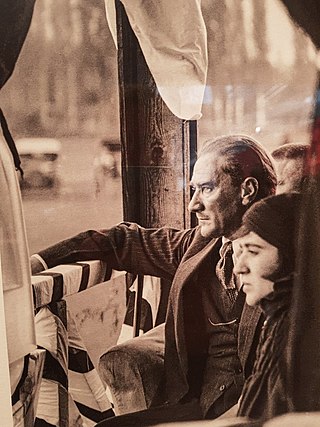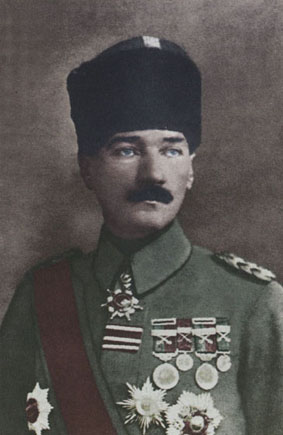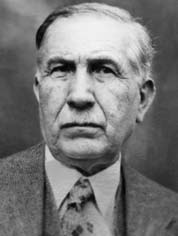Related Research Articles

Abdulaziz bin Abdul Rahman bin Faisal bin Turki bin Abdullah bin Mohammed bin Saud, known in the Western world mononymously as Ibn Saud, was an Arab political and religious leader who founded Saudi Arabia – the third Saudi state – and reigned as its first king from 23 September 1932 until his death in 1953. He had ruled parts of the kingdom since 1902, having previously been Emir, Sultan, and King of Nejd, and King of Hejaz.

Abdul Rahman bin Faisal Al Saud was the last emir of Nejd, reigning from 1875 to 1876 and from 1889 to 1891. He was the youngest son of Emir Faisal bin Turki bin Abdullah and the father of Abdulaziz, the founder of the Kingdom of Saudi Arabia.

The Rashidi dynasty, also called Al Rashid or the House of Rashid, was a historic Arabian House or dynasty that existed in the Arabian Peninsula between 1836 and 1921. Its members were rulers of the Emirate of Ha'il and the most formidable enemies of the House of Saud, rulers of the Emirate of Nejd. They were centered in Ha'il, a city in northern Najd that derived its wealth from being on the route of the Hajj pilgrimage to Mecca, and was also a commercial center. The rulers of Ha'il were the sons of Abdullah bin Rashid, founder of the dynasty.
Abd al-Aziz, frequently also transliterated Abdul-Aziz, is a male Arabic Muslim given name and, in modern usage, surname. It is built from the words ʽAbd, the Arabic definite article and ʽAzīz "Almighty". The name is commonly abbreviated as "ʽAzīz". The name means "servant of the Almighty", al-ʽAzīz being one of the names of God in Islam, which give rise to the Muslim theophoric names.
The Sun Language Theory was a Turkish pseudolinguistic, pseudoscientific hypothesis developed in Turkey in the 1930s that proposed that all human languages are descendants of one proto-Turkic primal language. The theory's promotion of Turks as a progenitor race led to it finding favour among Turkish ultranationalists, who used it to justify their nationalist ideology.

Mustafa Kemal Atatürk, also known as Mustafa Kemal Pasha until 1921, and Ghazi Mustafa Kemal from 1921 until the Surname Law of 1934, was a Turkish field marshal, revolutionary statesman, author, and the founding father of the Republic of Turkey, serving as its first president from 1923 until his death in 1938. He undertook sweeping progressive reforms, which modernized Turkey into a secular, industrializing nation. Ideologically a secularist and nationalist, his policies and socio-political theories became known as Kemalism (Atatürkism).

Hüseyin Nihâl Atsız was a prominent Turkish ultranationalist writer, novelist, and poet. Atsız self-identified as a racist, Pan-Turkist and Turanist. He later became a critic of Islam, calling it "a religion created by Arabs, for Arabs". He is the ideologue of Atsızism. He was the author of over 30 books and numerous articles and was in strong opposition to the government of İsmet İnönü, which he criticized for co-operating with the communists. He was accused of being a sympathizer of the Nazi government and plotting to overthrow the Turkish government.

Nawwaf bin Abdulaziz Al Saud was a Saudi Arabian businessman and politician. A member of the House of Saud, he became a close ally of King Abdullah. In different periods Prince Nawwaf held significant government posts, including the director of Saudi intelligence agency.

The Battle of Jarrab was a territorial battle between the Al Saud and their traditional enemies, the Al Rashid on 24 January 1915. It was a proxy battle of World War I and the Second Saud-Rashidi War between the British-supported Saudis and the Ottoman-supported Rashidis.

The personal life of Mustafa Kemal Atatürk has been the subject of numerous studies. Atatürk founded the Republic of Turkey and served as its president from 1923 until his death on 10 November 1938. According to Turkish historian Kemal H. Karpat, Atatürk's recent bibliography included 7,010 different sources. Atatürk's personal life has its controversies, ranging from where he was born to his correct full name. The details of his marriage have always been a subject of debate. His religious beliefs were discussed in Turkish political life as recently as the Republic Protests during the 2007 presidential election.

The Unification of Saudi Arabia was a military and political campaign in which the various tribes, sheikhdoms, city-states, emirates, and kingdoms of most of the central Arabian Peninsula were conquered by the House of Saud, or Al Saud. Unification started in 1902 and continued until 1932, when the Kingdom of Saudi Arabia was proclaimed under the leadership of Abdulaziz, known in the West as Ibn Saud, creating what is sometimes referred to as the Third Saudi State, to differentiate it from the Emirate of Diriyah, the First Saudi State and the Emirate of Nejd, the Second Saudi State, also House of Saud states.

Mustafa Kemal Atatürk was a field marshal, revolutionary statesman, and founder of the Republic of Turkey as well as its first president. Mustafa Kemal Atatürk's military career explains his life between graduation from Ottoman War College in Istanbul as a lieutenant in 1905 to his resignation from the Ottoman Army on 8 July 1919, as well as his military leadership throughout the subsequent Turkish War of Independence.
Şevket Süreyya Aydemir was a Turkish writer, intellectual, economist, historian, and one of the founders, publisher and a key theorist of Kadro ("Cadre"), an influential left-wing political journal published in Turkey from 1932 to 1934.
Mehmet Cavit Bey, Mehmed Cavid Bey or Mehmed Djavid Bey was an Ottoman economist, newspaper editor and leading politician during the dissolution period of the Ottoman Empire. As a Young Turk and a member of the Committee of Union and Progress (CUP) had positions in government after the constitution was re-established. In the beginning of the Republican period, he was controversially executed for his alleged involvement in an assassination attempt against Mustafa Kemal Atatürk.

Abdulaziz bin Abdul Rahman Al Saud (1875–1953), the founder and first king of Saudi Arabia, also called Ibn Saud, was very young when he first got married. However, his wife died shortly after their marriage. Ibn Saud remarried at eighteen and his firstborn child was Prince Turki I. He had 45 sons of whom 36 survived to adulthood and had children of their own. He also had many daughters. He is thought to have had 22 wives.

The Turkish History Thesis is a Turkish ultranationalist, pseudohistoric thesis which posited the belief that the Turks moved from their ancestral homeland in Central Asia and migrated to China, India, the Balkans, the Middle East, and Northern Africa in several waves, populating the areas which they had moved to and bringing civilization to their native inhabitants. The theory was developed within the context of pre-Nazi scientific racism, classifying the Turks as an "Alpine subgroup" of the Caucasian race. The intent of the theory was a rejection of Western European assertions that the Turks belonged to the "yellow or mongol" race. Mustafa Kemal Atatürk took a personal interest in the subject after he was shown a French language book that claimed Turks "belonged to the yellow race" and were a "secondaire" people.

The Ottoman Caliphate, the world's last widely recognized caliphate, was abolished on 3 March 1924 by decree of the Grand National Assembly of Turkey. The process was one of Atatürk's reforms following the replacement of the Ottoman Empire with the Republic of Turkey. Abdulmejid II was deposed as the last Ottoman caliph.
Abdullah bin Faisal Al Saud was one of the rulers of the Emirate of Najd, also known as Second Saudi State. His reign witnessed extensive struggle among the members of the Al Saud family which led to turmoil in the region.

Dhaydan bin Hithlain was one of the leaders of the Ajman tribe and Amir of the hijrah (settlement) of Al Sarrar. His full name was Dhaydan bin Khalid bin Hizam bin Hithlain. Alexei Vassiliev also calls him Zaidan.
References
- ↑ WorldCat
- ↑ "A short biography of H. C. Armstrong (April 1939)". www.ourcivilisation.com. Retrieved 2023-10-10.
- ↑ Özmen, Ceyda (2018-10-03). "Retranslating in a Censorial Context: H.C. Armstrong's Grey Wolf in Turkish". In Albachten, Özlem Berk; Gürçağlar, Şehnaz Tahir (eds.). Perspectives on Retranslation: Ideology, Paratexts, Methods (1 ed.). Routledge. doi:10.4324/9780203702819-4. ISBN 978-0-203-70281-9.
- ↑ Smele, Jonathan D. (2006), The Russian Revolution and Civil War, 1917-1921: An Annotated Bibliography, p. 467. Continuum International Publishing Group, ISBN 0-8264-9067-0.